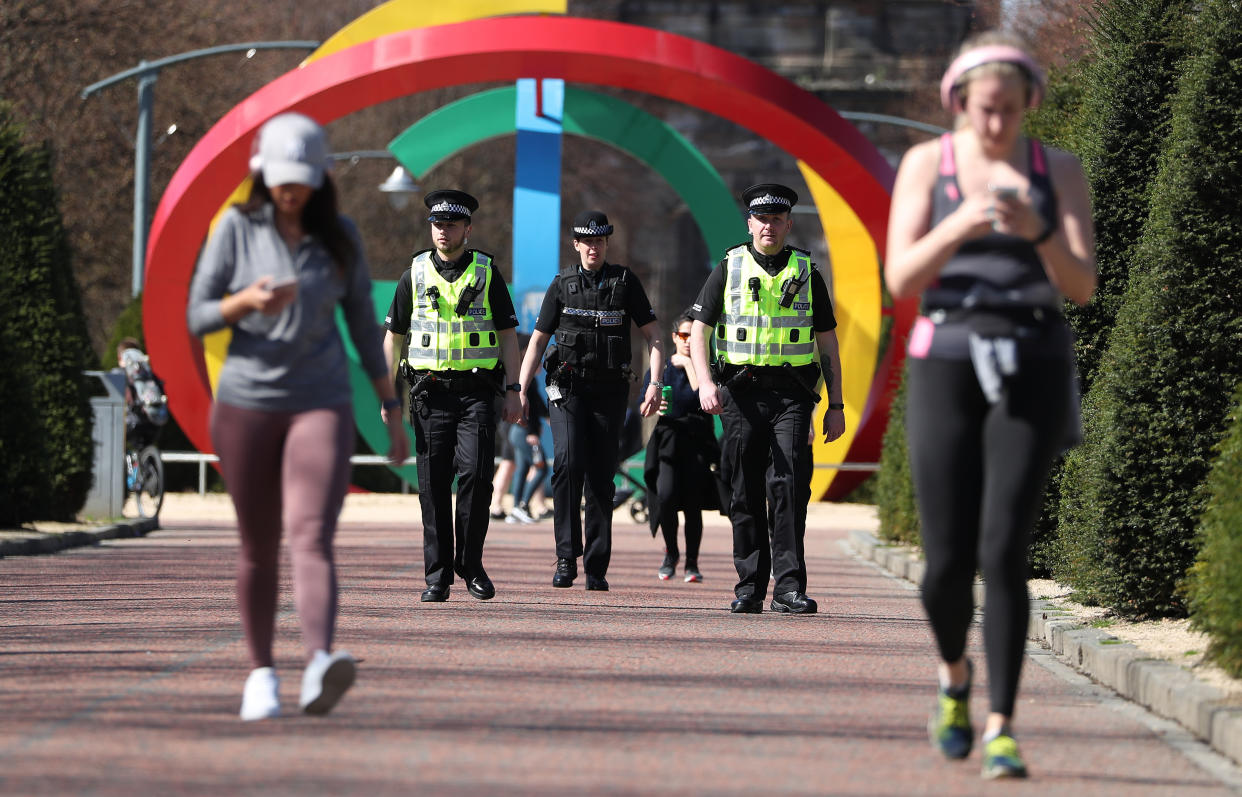Here's when you can legally stay at a friend's house during coronavirus lockdown

Police have said people should use their own judgment to decide if they need to stay at a friend’s house if they have an argument during the coronavirus lockdown.
Last week, the Crown Prosecution Service (CPS)released a checklist of dos and don’ts for the coronavirus crisis.
The dos include buying luxury items and alcohol, driving to the countryside and walking, when far more time is spent walking than driving, and stopping to rest or eat lunch while on a long walk.
The advice also says people should be allowed to cool off at a friend’s – despite restrictions – if a dispute in your home means you need some time away.
No explanation accompanying the advice was given.
Latest coronavirus news, updates and advice
Live: Follow all the latest updates from the UK and around the world
Fact-checker: The number of COVID-19 cases in your local area
6 charts and maps that explain how COVID-19 is spreading
Instead, the legal test around leaving home is whether your need to head out is “reasonable”, the CPS has said, and police have confirmed that cooling off will count as that.
The CPS told Yahoo News UK there is no specific type of argument that qualifies as serious “as this is relative to everyone”.
It will need to be that “those involved believed it to be sufficiently serious that they could not be under the same roof at the time”.
The National Police Chiefs’ Council has said you will need to truly believe you have to cool off at a friend’s.
“If a person has been involved in an argument and they genuinely feel they need some time out to cool off by going to a friend’s house then the guidelines enable them to do that.
“Police officers are engaging with the public and will of course seek to establish an individuals’ circumstances using common sense and discretion in deciding what is and what isn’t “necessary” and “reasonable” in the circumstances.”
Lockdown restrictions have been in effect since 23 March, and require people to stay in their homes unless they have to leave – to go to work, if unable to do so from home, shop for essentials or exercise.
Some police forces have been criticised for the way they have enforced the restrictions, with Northamptonshire Police chief constable Nick Adderley rowing back on comments that threatened to check people’s shopping baskets after receiving criticism.
Meanwhile South Yorkshire Police had to apologise after a video of an officer telling a Rotherham family they could not use their front garden went viral.
The College of Policing, the professional body for police forces in England and Wales, said officers will attempt to speak to people about the restrictions first.
A spokesperson said: “The police’s approach to COVID-19 remains to engage, explain, encourage and, as a last resort, enforce.
“Police officers are still expected to apply their discretion... in each case they are confronted with so there isn’t just a clear set of rules to cover all circumstances which officers could be called to attend.”
Read more: UK's response has 'failed spectacularly', says former Tory MP
The college also made it clear that advice about cooling off after an argument should not be mistaken for a broad definition that includes domestic abuse.
“The police are really clear that the regulations do not prevent anyone living in fear of domestic abuse from fleeing their home. The police will respond to keep them safe and bring the perpetrator to justice,” the spokesperson said.

 Yahoo News
Yahoo News 

